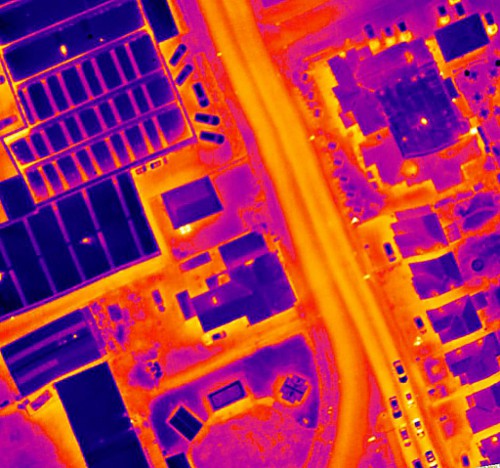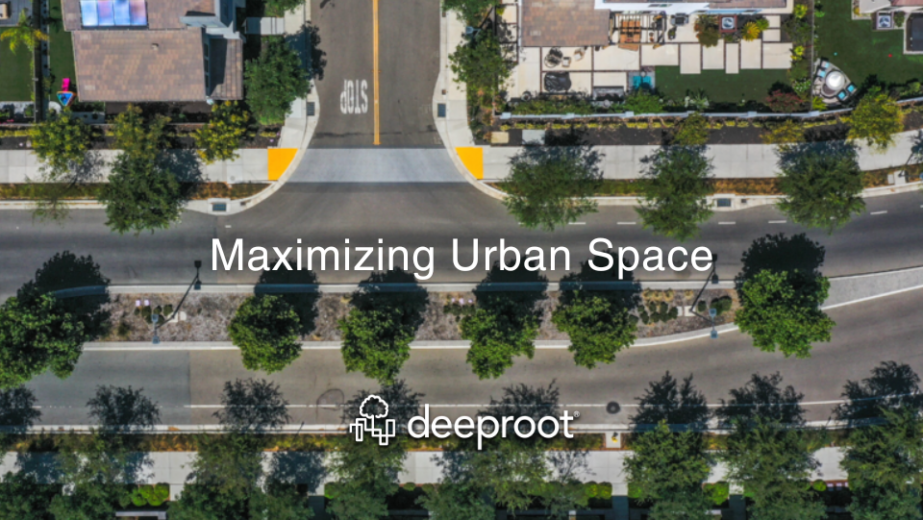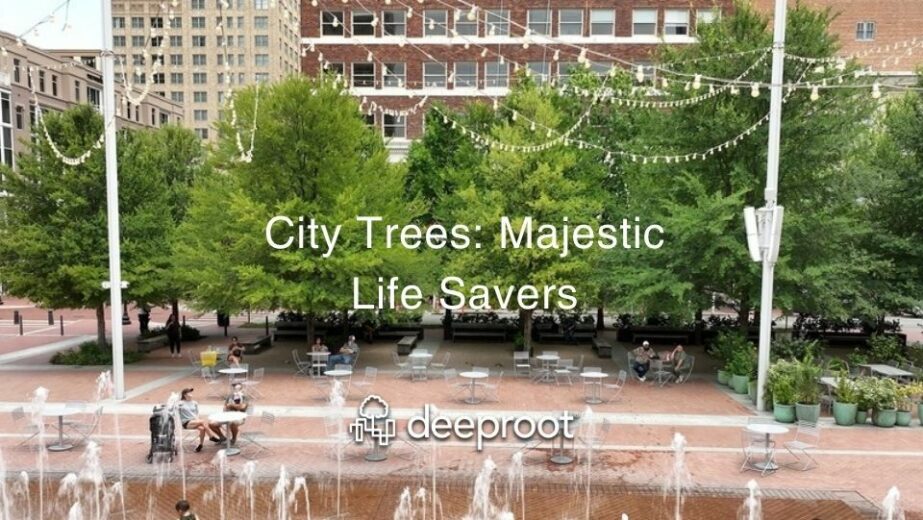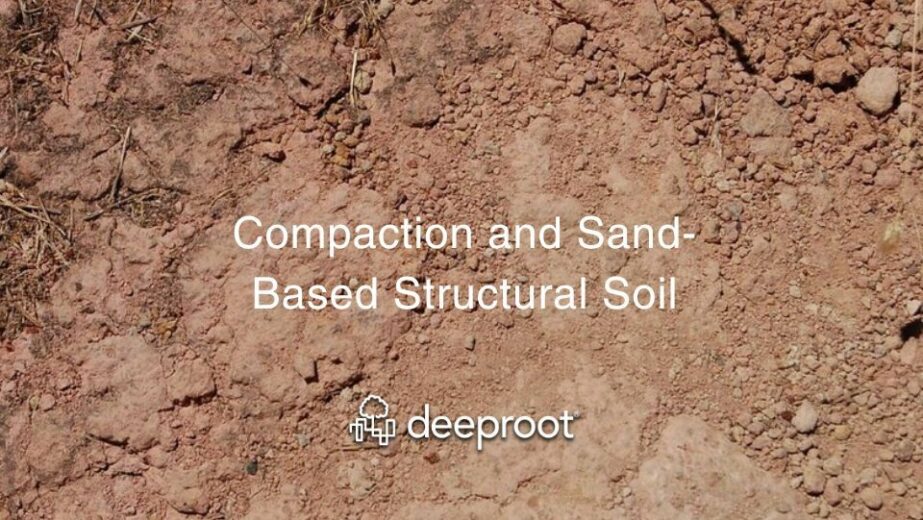
Many people and (dare I say) authors of this blog cite energy savings as one of many benefits of healthy urban trees. But where exactly do these energy savings come from? The answer comes in two parts: trees benefit buildings immediately neighboring them, and they also benefit the surrounding city.
Energy savings for neighboring buildings
What comes to mind for many is that trees provide shade in hot weather (which reduces use of air-conditioning) and a wind barrier in cold weather (reducing the need for heating). For climates with a hot summer and cold winter, deciduous trees allow both benefits: shade in the summer when the trees are leafy, and both wind protection and solar penetration into building to heat the building in the winter.
Cited on this blog before, a study of street trees in 23 communities in Indiana showed $604,779 in cumulative energy savings. Another study in Sacramento, California found that shade trees on the west and south sides of a house can reduce a household’s summer electric bill by about $25 a year. This might not sound like a lot to a homeowner, but, scaled up to a whole community, it adds up. Especially for an electric utility, because energy use is reduced during hot, summer afternoons, when energy demand is at its highest (and energy prices are most expensive).
Cooling the surrounding town
Beyond these immediate benefits, trees cool their urban environment; the extent of the local tree canopy can influence temperatures within a city. I’m sure readers here know that trees cool air temperature through shading and evapotranspiration, but trees also reflect more light and heat back up to the atmosphere than the paved surfaces they cover. These powers combined — shading, evapotranspiration and reflecting the sun — mean that trees reduce the Urban Heat Island effect.
With lots of dark roofs and paved streets and parking lots, our urban areas absorb a lot of heat. In contrast, plants have a high “albedo”– they reflect a lot of sunlight, especially in the infra-red portion of the solar spectrum, which is where most heat comes from. So trees (along with cool or reflective roofs and paving materials) are essential to reducing the urban heat island effect and keeping ambient temperatures down during hot seasons (and, again, reducing the need for air-conditioning).
Okay, now here’s the kicker: A recent study from Lawrence Berkeley National Lab suggests that trees help cool the whole planet! Not only are they cooling the immediate area through shading and evapotranspiration, and the local area by reflecting heat and reducing urban heat island, but the water that evaporates from trees creates low-level clouds. These clouds reflect the sun, further cooling the earth’s surface. (The study is well summarized here and here for those that want a bit more.)
Now, the trees can’t do all the work! You need to plant the right tree in the right place and energy savings will be larger in hotter climates. But, it’s nice to know what trees are capable of.
Stephanie Stern is an independent environmental consultant in San Francisco specializing in energy efficiency and sustainable communities. She used to work on urban heat island issues through the Cool Roof Rating Council. You can learn more about her at stephstern.com
Image: NASA






Protecting our forests from deforestation can help limit the impact and severity of natural disasters. Saving trees can save lives.
My husband and I are thinking about putting some trees in our front yard, so I wanted to do some research on why that may be a good idea for us to do. It is so interesting to me that not only do trees cool down the immediate area surrounding them, but they help cool down the whole planet by creating low-level clouds. It seems like a great way to help us save money on energy and help the environment as well! I’ll be sure to share this information with my husband.